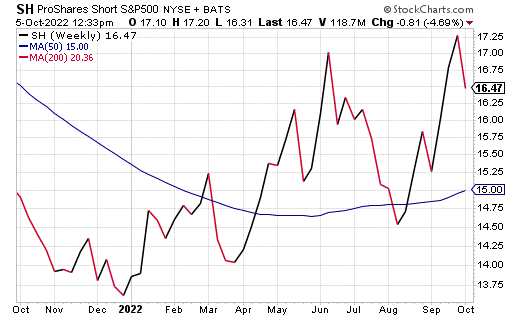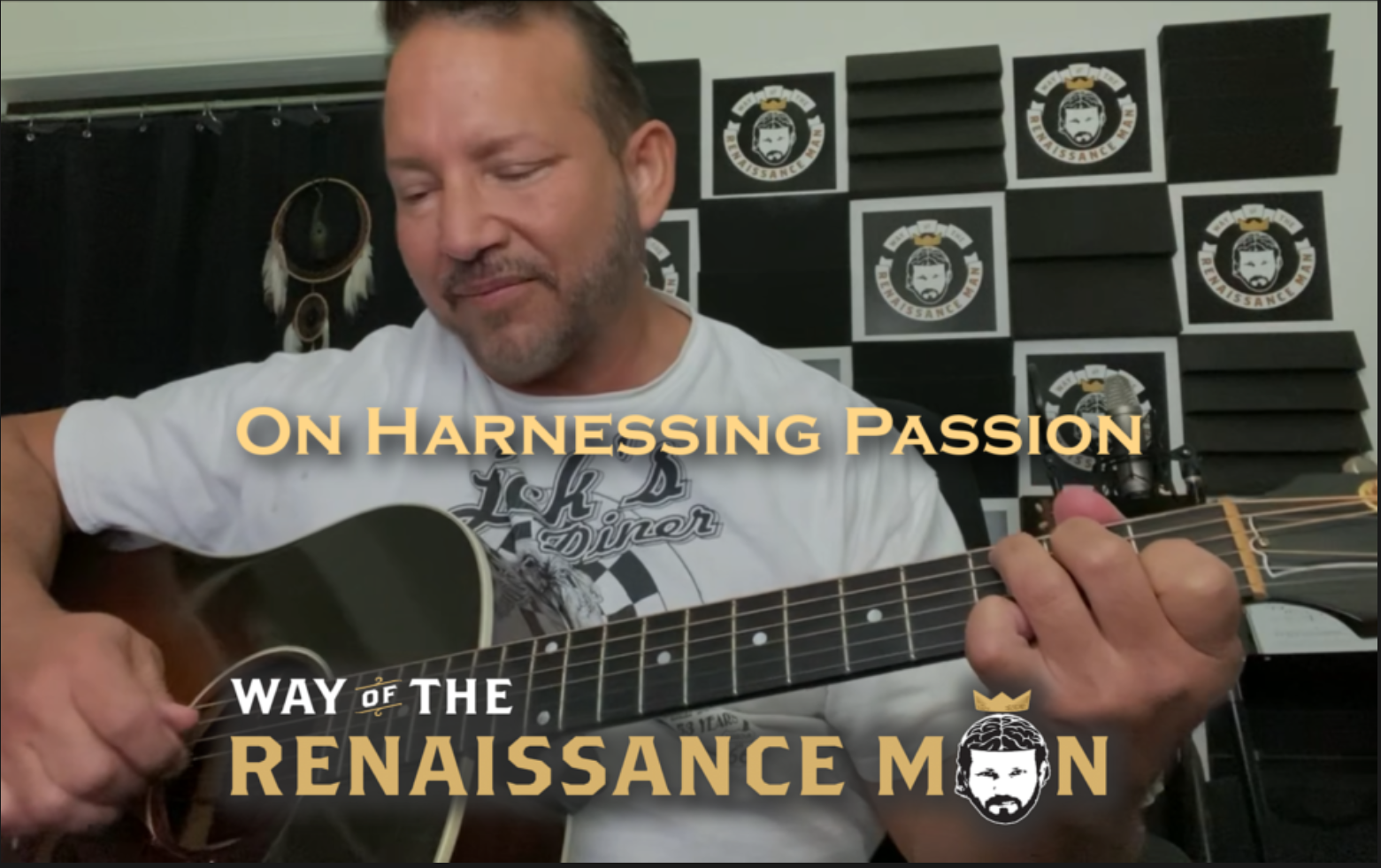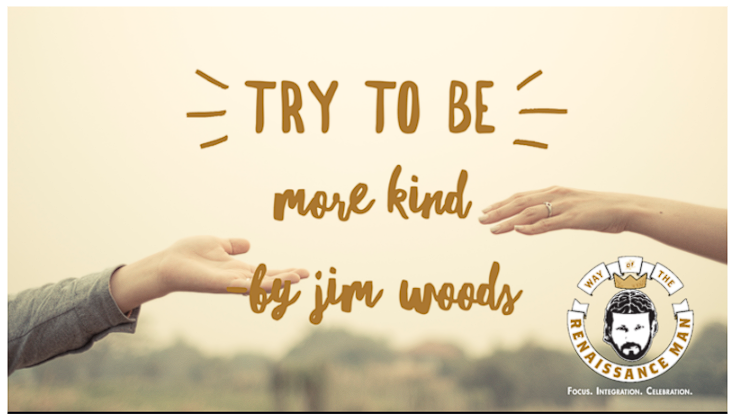Behold the Power of Effective Communication
- Behold the Power of Effective Communication
- ETF Talk: Bet Against the S&P 500 with This Fund
- Wednesdays Mean Wisdom
- Harnessing the Power of Kindness
- Smith on Happiness
***********************************************************
Behold the Power of Effective Communication
Note: Today I am proud to present to you a guest editorial by my friend and colleague Heather Wagenhals. An expert in communications, media and public speaking, Heather’s insights into how to effectively communicate are a perfect antidote for our polarized, tribalistic times. If you want to learn how to be a more effective communicator and to effectively persuade others, this article is for you.
“To disagree, one doesn’t have to be disagreeable.”
These words were spoken by my home-state Senator and the 1964 Republican nominee for president, Barry Goldwater. Sadly, today the idea of disagreeing without being disagreeable is barely recognizable in the public square. These days, extremism is the norm. Forget about terms such as “liberal” and “conservative” or “knuckle dragger” and “snowflake.” Those terms are much too docile.
Now, you are a “masker” or an “anti-masker”, a “Karen” or a “virtue-signaling, knee-taking apologist.” Even within my own Republican party, the rhetoric has become toxic. These days you are either a conspiracy-spreading QAnon disciple, or you’re a “RINO,” or a “Republican In Name Only.”
This labeling and name-calling, including those now-infamous tweets sent from the highest political office in the country, coupled with the lack of respect for our fellow human and the vitriol cast at those who disagree have fomented a pernicious intolerance that we haven’t seen in this country in decades. All one needs to do is look at the disgraceful Capitol siege that took place on Jan. 6 to know this.
To me, this heinous behavior demands action, because if you are like me, a liberty-loving American who wants the best for their country, it is incumbent upon you to find and create connections with those who are still reasonable in order to make our country better.
You see, in today’s soundbite-fed, personalized social-media-streaming era, we can get lost in our own custom-tailored, perfectly curated and dreadfully myopic world. By avoiding reality through avoiding other perspectives and engaging in effective dialogue with others, we are only doing ourselves a major disservice.
As my friend and editor of this publication, Jim Woods, has written, “The only solution to bad ideas is good ideas.” Well, my corollary to that is that “The only way to put good ideas out into the world is to effectively communicate those ideas, and especially to those who might initially disagree.”
Sadly, today the art of communication seems to have been lost. In a digital age of texting, email, direct messaging via social media apps and 280-character tweets, we seem to have lost our ability to create meaningful connections and to employ all our communication faculties to effectively persuade others.
Yet, I believe there is still time to reach the undecided.
I am of the opinion that there are those who might ardently disagree with my views but who also are still open-minded enough to be willing to be persuaded. I know this because I have this mindset, and the chief reason why is because I don’t want to be wrong in my thinking. And if I can be persuaded by a strong and effective argument, one with facts, logic and emotional content, then so can others.
Of course, the trick becomes: how does one do this? Here again, I’ll turn to Jim’s insights, as he recently wrote, “In order to persuade others, we first must avoid putting them on the defensive with disrespect and insult. If you can do that, you’re already halfway home.”
One way to avoid putting others on the defensive is to understand what’s happening to them when you do just that. Indeed, knowledge of how we think and process information, and how our biology affects us when we greet and interact with other people, will help us succeed in effectively persuading others.
For example, if I had started this article with racial slurs and misogynistic insults and man-hating statements, you’d probably get angry with me from the outset. In fact, the minute you or someone you feel a kinship with is attacked, your survival instincts kick in and you’ll shut down the critical thinking areas of your brain and stop listening.
So, the first thing we must learn to do is avoid “pressing another’s buttons.” If you immediately start hurling labels at others such as “liberal” or “leftist” or “woke progressive,” you aren’t going to be able to unlock the key to persuasion.
Instead, why not just begin a conversation with a sincere attempt to understand why a person thinks the way they do, and what their reasons are for those thoughts? Indeed, sometimes just the simple power of asking questions can be the most effective form of communication and persuasion.
Think of it as the Socratic method, or what’s sometimes referred to as “street epistemology.” The power of asking poignant questions to others, and their own realization that they may hold views without very good reasons, can be a profound tool for initiating change. And you do so without you ever having to pass judgment.
The second thing we can do to help promote better conversations is to assume responsibility for ourselves. In this context, that means understanding that effective communication is 100% your responsibility — not to get your point across, but rather, to elicit the right result. Let me explain.
Have you ever asked anybody to, “meet me halfway” in a negotiation? If two people are involved in communication or negotiation, what do you think the percentage should be? Is it 50/50? Is it 60/40?
The answer is it’s 100% your responsibility because that’s the only person you have control over. Here, it is important to consider that the meaning of a communication is all about the response you elicit. So, if you’re not able to persuade others, it’s you who haven’t communicated effectively.
The next time you approach a discussion of any kind, instead of pushing your ideas onto others and exacting your will, try to show them a path and lead them to a better way of thinking. And instead of pushing, try persuading via sincere interest and curiosity in what they believe in.
Finally, remember that great communication and effective persuasion is not about you. It’s all about the other person. So, it’s not about how fabulous or sophisticated or smart you are, it’s about figuring out the right things to say or the right questions to ask the other person. In other words, force your interlocutor to confront and explain their beliefs. You’ll be surprised how disjointed and how unstable many deeply held beliefs really are.
Once you’ve helped another realize this, the pump is primed for a deeper conversation about what you think, and how you think your ideas can improve things for everyone.
***************************************************************
ETF Talk: Bet Against the S&P 500 with This Fund
The ProShares Short S&P500 (NYSEARCA:SH) provides inverse exposure to a market cap-weighted index of 500 large- and mid-cap U.S. firms selected by the S&P Index Committee.
SH offers a bet against the S&P 500 and provides the liquidity required to allow investors to use it as such. The fund, like most leveraged and inverse products, is designed to deliver its inverse exposure to its underlying index — a market cap-weighted basket of 500 large-cap U.S. firms selected by the S&P Index Committee.
Holding this fund for a period longer than a day will introduce the effects of compounding, even if this is less pronounced in a non-leveraged product. Still, the tool is designed to be held for the short term (days or weeks) with frequent rebalancing of exposure to approximate the target -1x multiple.
This fund is not a buy-and-hold investment and should not be expected to provide index leverage return greater than a one-day period.

Source: www.stockcharts.com
The fund invests in financial instruments that ProShares Advisors believes, in combination, should produce daily returns consistent with the fund’s investment objective. It is a float-adjusted, market capitalization-weighted index of 500 U.S. operating companies and real estate investment trusts selected through a process that factors in criteria such as liquidity, price, market capitalization, financial viability and public float. The fund is non-diversified.
SH has $3.8 billion in assets under management and a 0.07% average spread. Its expense ratio is 0.88%, meaning it is relatively expensive to hold in relation to other exchange-traded funds.
While this fund provides investors with inverse exposure to the S&P 500, this kind of ETF may not be appropriate for all portfolios, hence interested investors should always conduct their own due diligence in deciding whether the fund is suitable for their own individual investing goals.
As always, I am happy to answer any of your questions about ETFs, so do not hesitate to send me an email. You just may see your question answered in a future ETF Talk.
*****************************************************************
Wednesdays Mean Wisdom
Did you know that Wednesday means wisdom?
Well, not technically speaking, but Wednesdays do mean a fresh dose of wisdom from some of the greatest thinkers the world has ever known, as those thoughts are profiled each Wednesday on my podcast and lifestyle website, Way of the Renaissance Man.

This week’s wisdom is all about harnessing passion, and who better to remind us of how to do that than American novelist, poet, and one of the pioneers of the Beat Generation, Jack Kerouac.
If you want a little dose of inspiration (and who doesn’t?), then check out the newly published Wednesday Wisdom featured right now at Way of the Renaissance Man.
*****************************************************************
In case you missed it…
Harnessing the Power of Kindness
Kindness is a powerful force.
I’ve known that for some time, and the older, and hopefully wiser, I get, the more I realize it. And apparently, I’m not the only one. A few days ago, I read a story about how people underestimate the positive impacts of random acts of kindness.
This story covered a new study published recently in the Journal of Experimental Psychology: General. Through a series of experiments, researchers found that those on the receiving end of a kind gesture typically appreciated it more than the giver anticipated. One reason suggested by the findings may be that recipients feel the warmth behind the gesture, while the giver often overlooks that.
The takeaway here for me is actually quite simple: If you have an opportunity to be more kind, embrace it.
Of course, if you are a long-time reader of The Deep Woods, this embrace of kindness is likely very familiar. In fact, in January 2019, I wrote about the importance and gratification of harnessing the power of kindness as a force for good in society.
Given this latest “kindness news,” I thought it was timely and appropriate to republish that January 2019 article, as what I said then is even more spot on in the light of the new scientific research. And now, I present to you, “Try to Be More Kind.”
Try to Be More Kind
We live, then we die.
That’s a reality we all must grapple with each minute. And the fact that life is finite has implications for everything we do. And no matter what your beliefs are about the existence of an afterlife, there is no doubt that life on earth, as we experience it, is going to come to an end for us all.
This admittedly morbid, yet eminently liberating, realization is at the spine of nearly all our decisions, even though many times we fail to realize it. Think about the actions you take each day.
You wake after a night of sleep because your body requires sleep. You consume food because your body requires energy. Then for most of us, we engage in some form of productive activity that nets us financial compensation so that we can attain the capital required to fund our existence.
If we’re lucky, we have family and friends who we love that we can share our lives with, and that allow us to both provide and receive mutual support.
The requirements of a finite life also have a profound effect on your decisions about what to do with your money, how to spend that money, how to invest it and how to plan for a time when you may not be able to, or may no longer want to, work. Then there’s your family, and the work involved in making the right decisions to provide for them when you’re no longer here to do so.

For a special audio essay version of the article “Try to Be More Kind,” click here.
Now, much of my newsletter advisory services are aimed at the nuts and bolts of how to put your money to work in the financial markets so that you can maximize this critical aspect of your life. Yet as you likely know, in The Deep Woods, I like to peel back the layers of the onion skin so that we can access the principles at the root of the issue.
And when you think about it, what is at the essence of our quest to make sure we are financially secure enough to take care of ourselves and the ones we love?
To me, the answer is simple: It’s a desire to be kind.
Indeed, the desire to be kind, i.e., the quality of being caring, attentive, considerate and otherwise thoughtful of others, is something that we all should strive to be motivated by. I know for me, the action I take out of kindness not only feels good, but it’s always in my rational self-interest to do so.
Acting kind doesn’t mean self-sacrifice. Rather, it means acting and interacting with others so that both parties receive maximum benefit from the interaction.
Extended out to the political realm, the desire for kindness is why I am a passionate advocate for laissez-faire capitalism. You see, capitalism is the only social system where men are free to interact with each other based on the principle of exchanged values.
For example, this morning I went to my local Starbucks and paid $4.95 for a latte. I wanted the latte more than I wanted the $4.95, and Starbucks wanted the $4.95 more than they wanted the latte. I didn’t exercise physical force to extort the latte from my barista, and she didn’t wrestle me into the store from the street to confiscate my money.
Instead, we engaged in a mutually kind exchange of values that also was mutually beneficial. This kindness is the essence of capitalism, and it’s the opposite of the Marxist idea that capitalism exploits the proletariat.
In my view, a prescription for increasing societal happiness is to increase kindness. Not only in terms of our daily human interactions, but also in the wider sense of people interacting with each other via the kindest of all principles — the principle of free exchange.
Finally, I’ll leave you with a powerful quote from philosopher and neuroscientist Sam Harris regarding kindness. As Sam writes: “Consider it: every person you have ever met, every person will suffer the loss of his friends and family. All are going to lose everything they love in this world. Why would one want to be anything but kind to them in the meantime?”
If you want to make yourself and the world a better place, try to be more kind.
*****************************************************************
Smith on Happiness
“What can be added to the happiness of a man who is in health, out of debt, and has a clear conscience?”
–Adam Smith
The brilliant Scotsman imbued the world with sagacity, and here is just one of his many pithy profundities, this time on one of the most important subjects to us all—happiness. If you want to really be happy, take steps to improve your health, your finances and conscience, as disruptions in these three areas will surely negate your happiness.
Finally, I’m excited to announce that I’ll be speaking at the W3BX conference Oct. 10-13 in Las Vegas. Join some of the biggest names in the industry, including my colleagues Bryan Perry and Jon Johnson, along with our publisher Roger Michalski, to learn more about investing in blockchain, cryptos, NFTs, Metaverse, mining and all things Web 3.
The Web 3 sector is expected to grow from $3.2 billion to $81.5 billion by 2030. The more you know about it, the more potential money you can make from this explosion.
Click here now to learn more about the conference and be sure to enter the code “EAGLE” when you register to save 20%. I’ll see you in Vegas!
Wisdom about money, investing and life can be found anywhere. If you have a good quote that you’d like me to share with your fellow readers, send it to me, along with any comments, questions and suggestions you have about my newsletters, seminars or anything else. Click here to ask Jim.
In the name of the best within us,

Jim Woods


